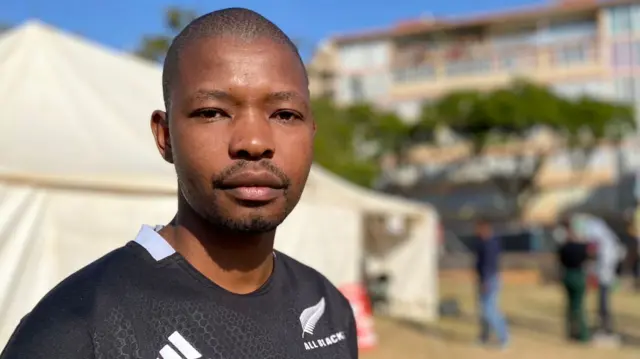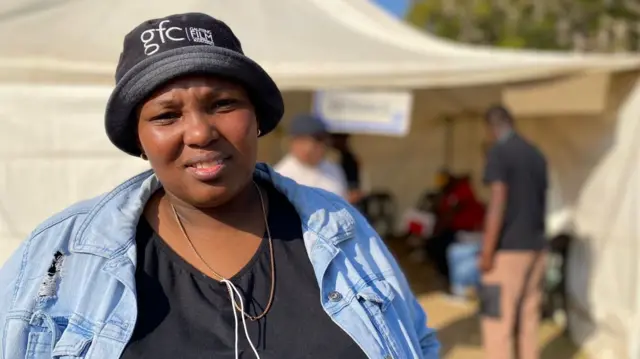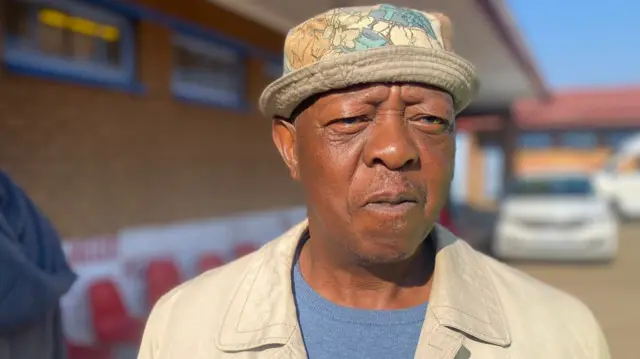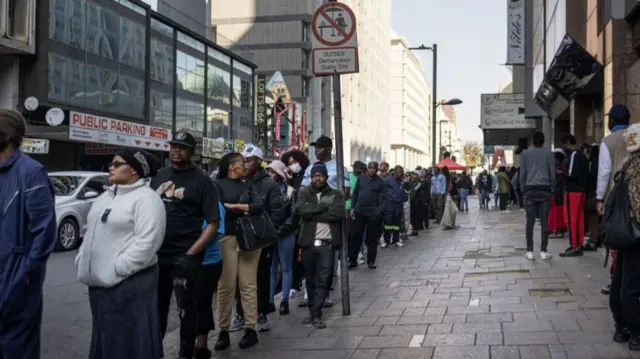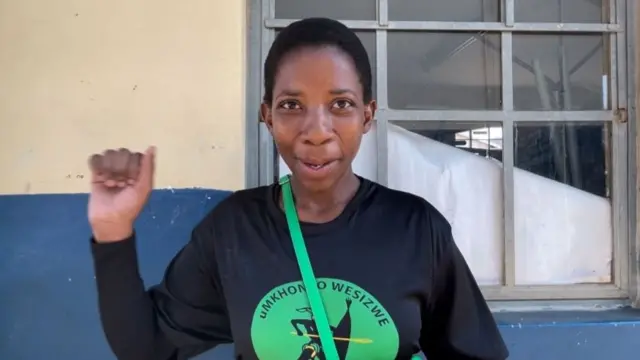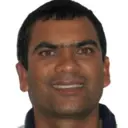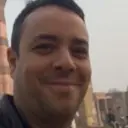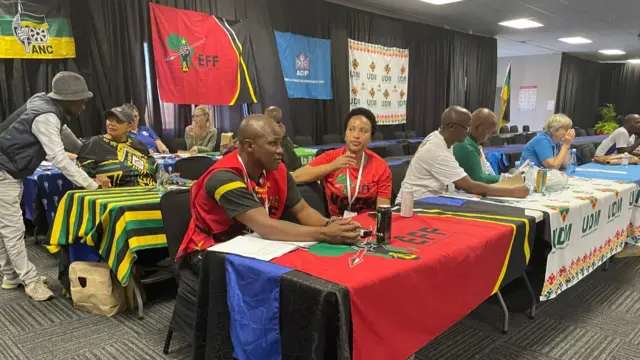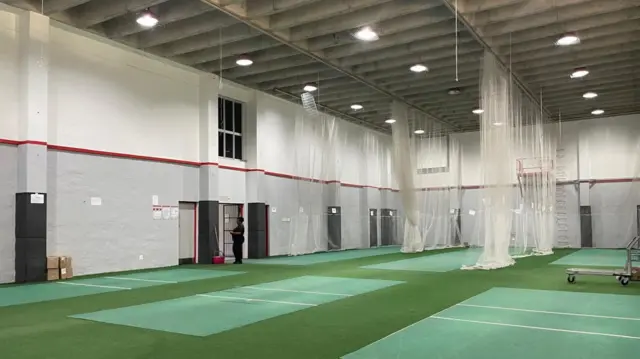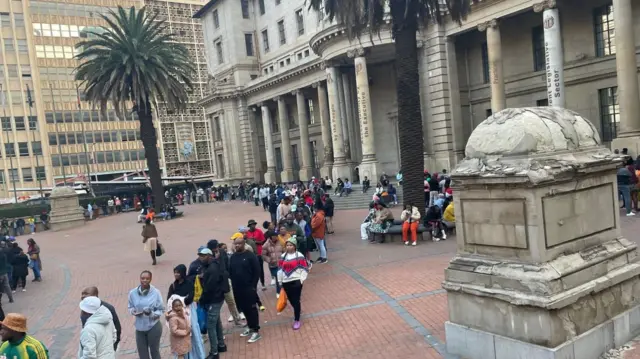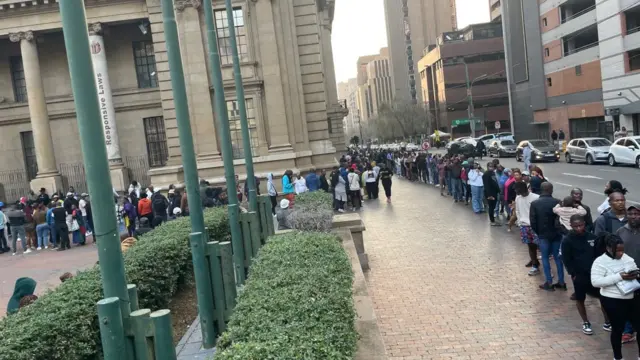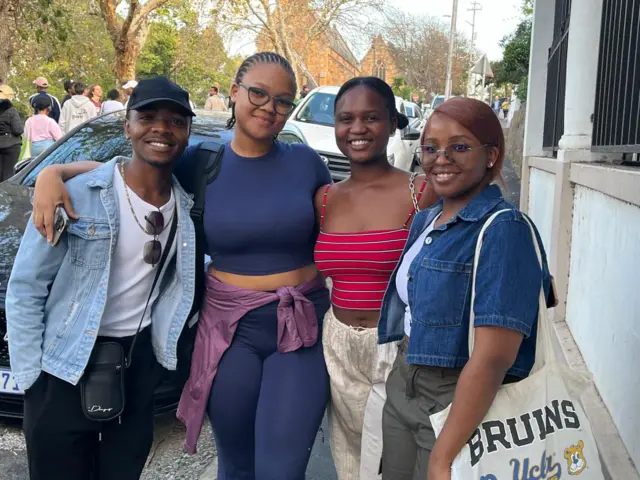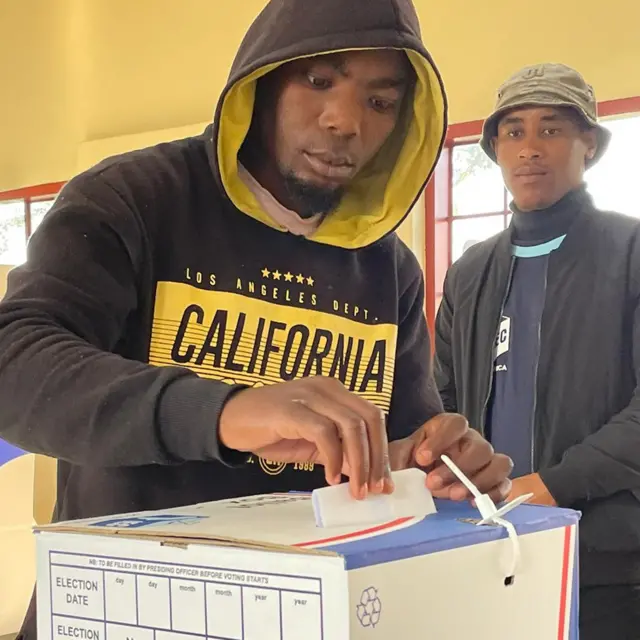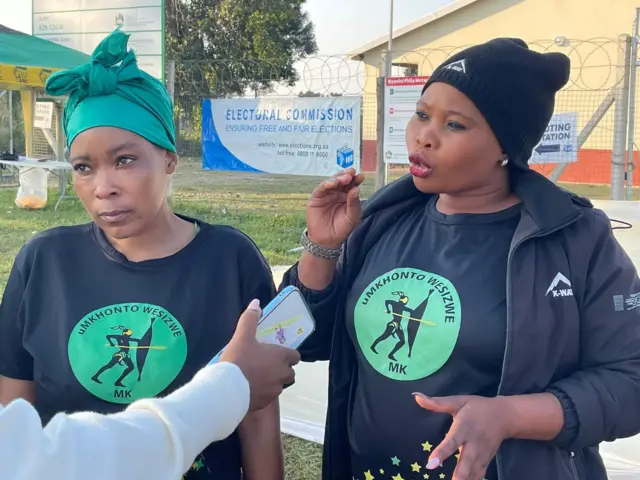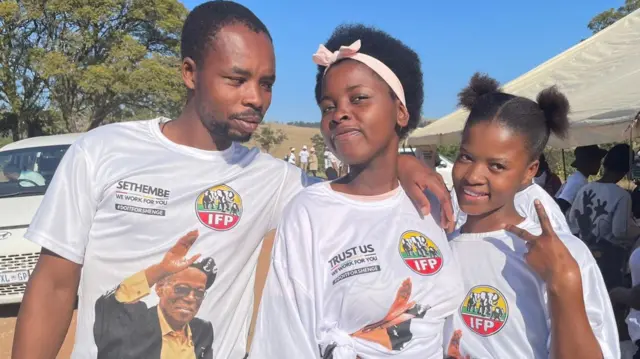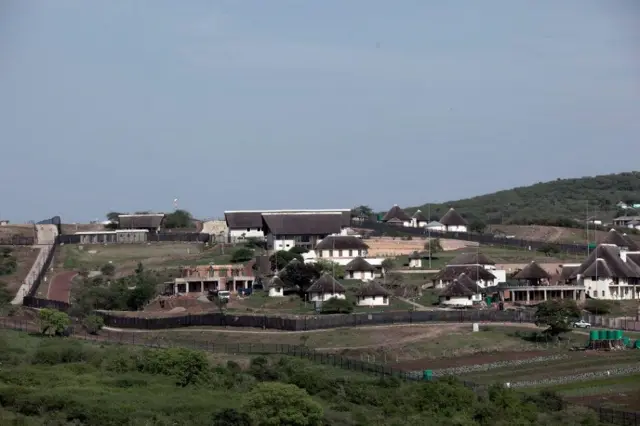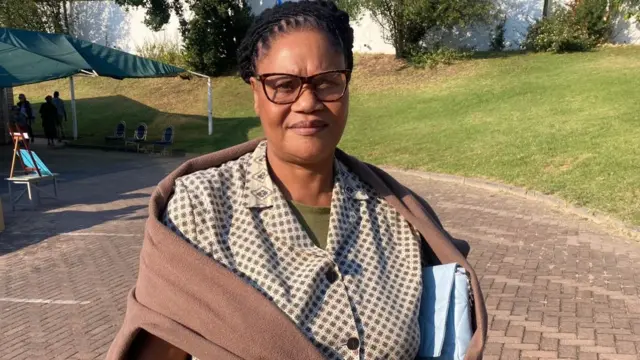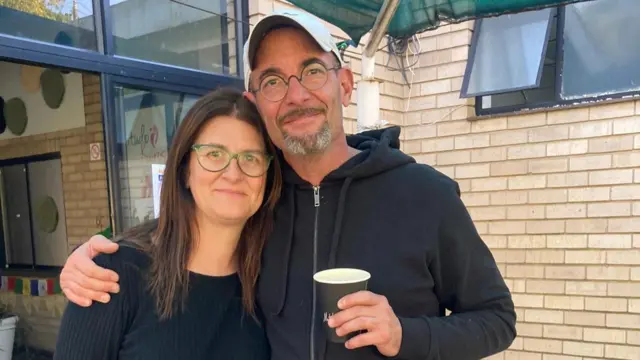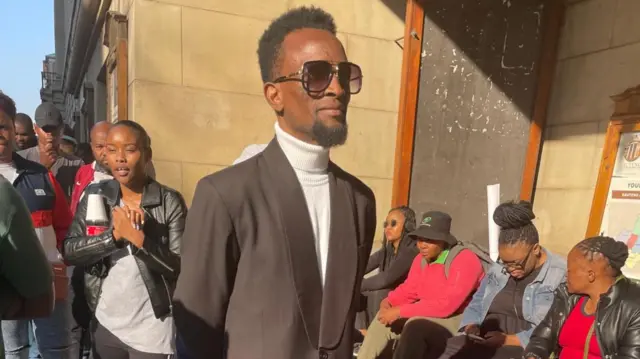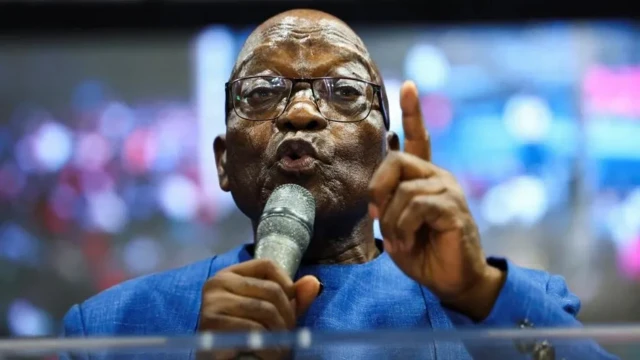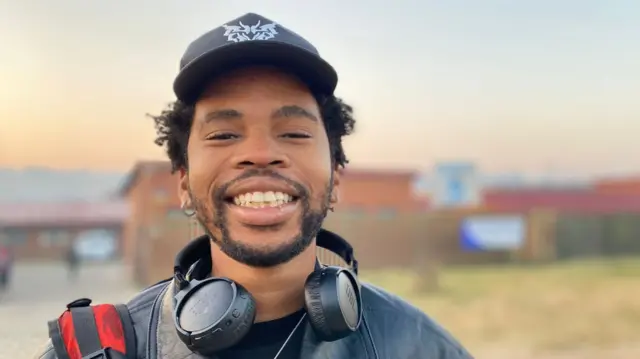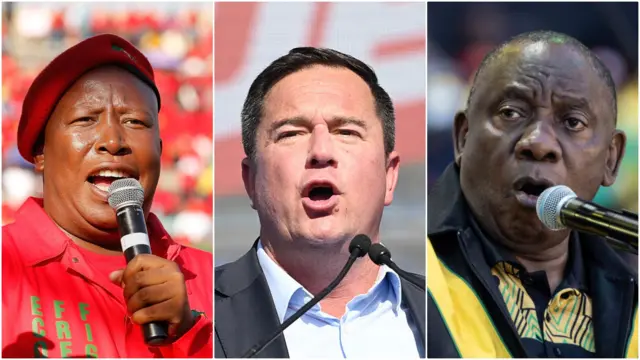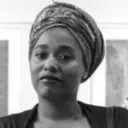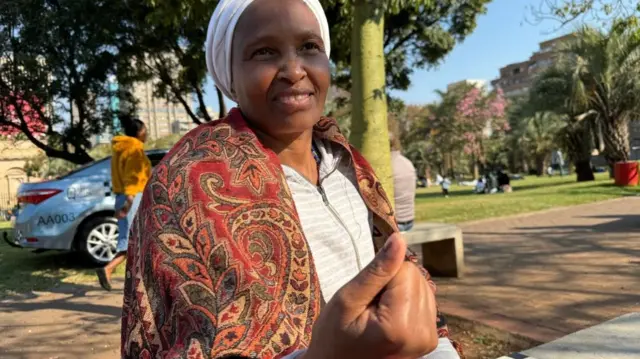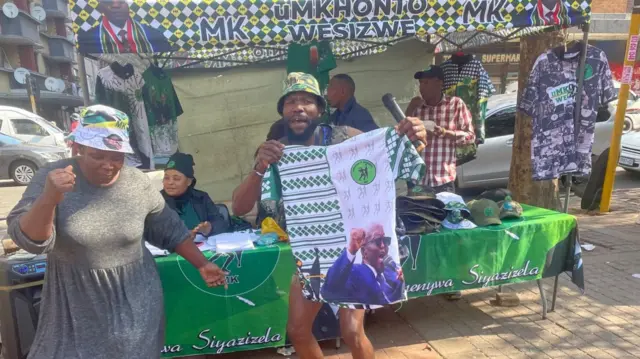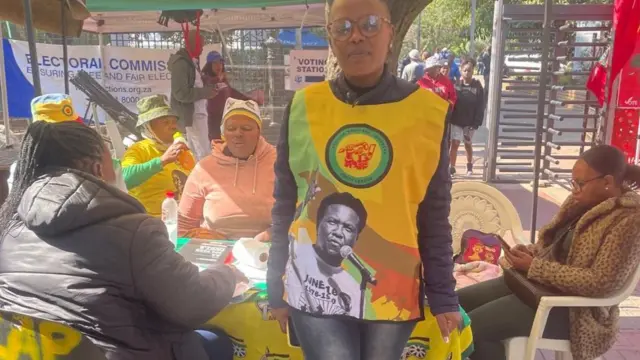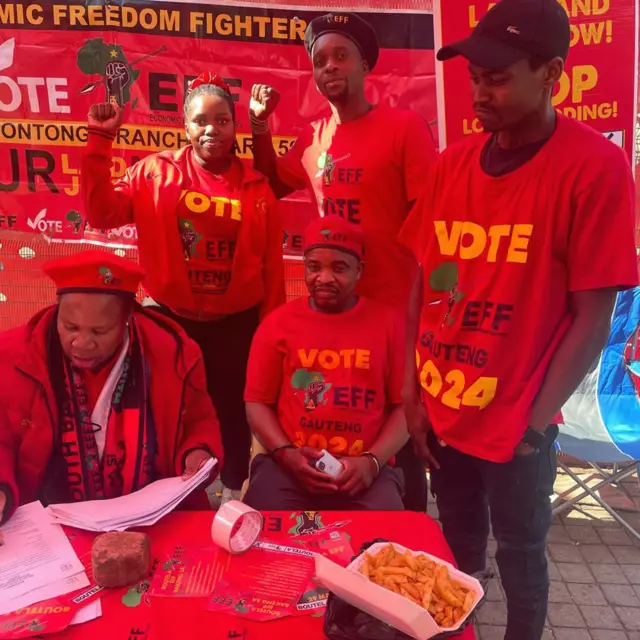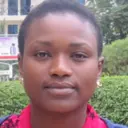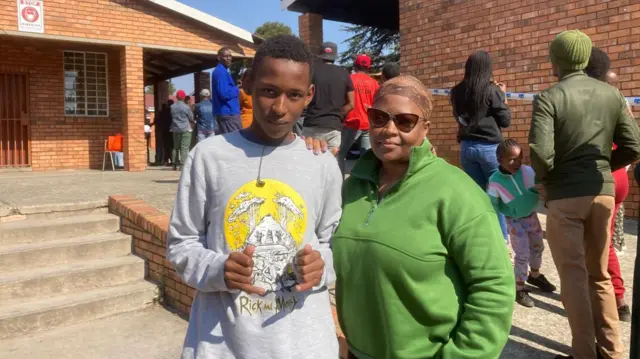Polls officially close but those in queues can still votepublished at 20:35 BST 29 May 2024
Our coverage is ending
Polls have officially closed in South Africa, where there have been long queues reminiscent of those 30 years ago at the end of apartheid.
The electoral commission says people in lines to vote by 21:00 local time (19:00 GMT) will still be able to do so - and police had been deployed to ensure the safety of voters.
There was a late surge at polling stations, especially in urban areas, it said, predicting turnout would be higher than the last poll.
Key moments of the day include:
- The staying power of voters - some queued for more than seven hours and the EFF leader Julius Malema queued for three hours to cast his ballot
- Supporters of ex-President Jacob Zuma, who is campaigning against the ANC for the new MK party, ululating and chanting his clan names as he arrived to vote in his home village
- Best quote from a Johannesburg voter dressed up in a yellow and black outfit: “I’m ANC, right to my underwear.”
A reminder of why the vote is so important:
- It could see the ANC lose its majority for the first time since 1994 when Nelson Mandela came to power as the country’s first democratically elected president
- The party has been under fire over widespread corruption in government, the high levels of unemployment, deteriorating public services and rampant crime
- It may be forced to enter into a coalition with one or more opposition parties.
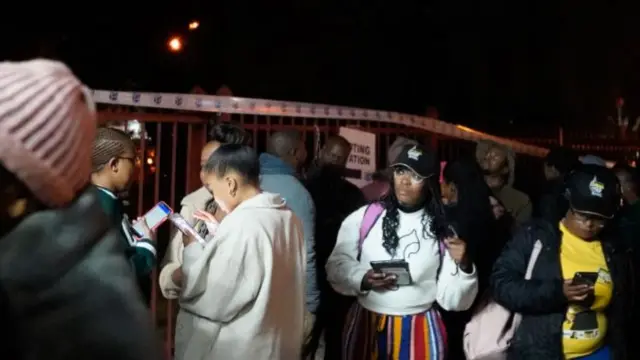 Image source, AFP
Image source, AFPThose in the queue can still vote
First results should start trickling in overnight - for the latest go to BBCAfrica.com.
